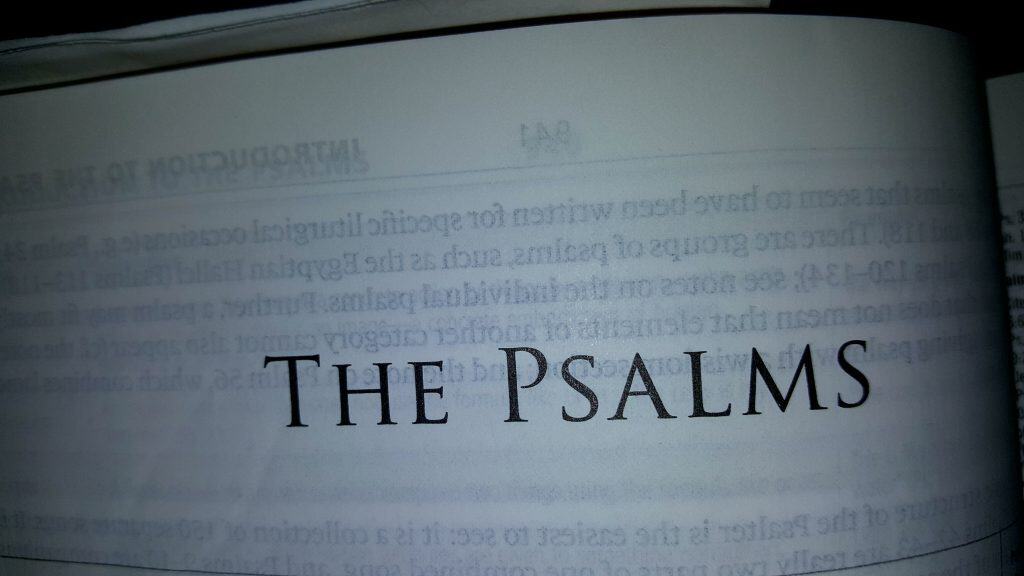⏱️ Estimated Reading Time: 8 min read
Life is hard in a fallen world and we often express our circumstances in the minor key. So, the Psalms of lament (about 40% of the Psalter) teach us how to rightly process our grief and suffering. Lament “gives voice to suffering. . . . In it suffering is given the dignity of language.”1 In the example of lament below, we will discover three movements to deal with sorrow as we cry out, call upon, and commit ourselves to God.
In lament, believers first cry out to God in honest prayer (e.g., Ps 55:4–6). Our heavenly Father wants to know his children’s hearts especially as we face tremendous sorrow. So, in our despair and disorientation, we trust our God to care for us as we cast all our cares on him (1 Pet 5:7). He promises to listen as we honestly express the specific pain or injustice we are facing. Very often in the Psalms, this movement of crying out asks the questions of “Why?” or “How long?” In Psalm 13, for example, David cries, “How long, O LORD? Will you forget me forever? How long will you hide your face from me? How long must I take counsel in my soul and have sorrow in my heart all the day? How long shall my enemy be exalted over me?” (vv. 1–2). Four times, he pleads, “How long?” because his sorrow seems to be without an end and his enemies appear to be winning. Yet notice that he cries out directly to Yahweh, the covenant God of Israel. David complains to God, but not about him. He openly declares that he feels abandoned, yet he clings to his hope that God still listens.
Psalms of lament permit us to speak freely before the God who receives our complaints. Yet such lament can arise from either fear or faith. Fearful lament worries that God might not be big enough, whereas faith-filled lament is calling on God to act. So, crying out to God is a good place to begin, but we must not stay there. The present darkness reminds us that we were meant to live continuously in the light. As Brueggeman warned,
These psalms are dangerous. They lead into places of deep darkness, where denial and deception try to rule the day. They lead us to the place where we have to say this is how it really is, to a place where not everything can be reduced to polite and civil musings and gestures. They lead us, ever boldly, into the places unthinkable thoughts and unutterable words. But our honest experience, both personal and public, attests to the resilience of the darkness, in spite of us. The remarkable thing about Israel is that it did not banish or deny the darkness from its religious enterprise. It embraces the darkness as the very stuff of new life.2
For this reason, the second movement of lament is to call upon our God to act in a specific way that fits his character and resolves our complaint. In times of despair, we remember the God who has revealed himself in Scripture and was faithful in our past experience. We trust his unchanging character, his passion for his own glory, and his promise to do us good (Rom 8:28). As Bonhoeffer wrote,
Because God’s word has spoken to us in history and thus in the past, the remembrance and repetition of what we have learned is a necessary daily exercise. Every day we must turn again to God’s acts of salvation, so that we can again move forward Faith and obedience live on remembrance and repetition. Remembrance becomes the power of the present because of the living God who once acted for me and who reminds me of that today.3
David pleads, “Consider and answer me, O LORD my God; light up my eyes, lest I sleep the sleep of death, lest my enemy say, ‘I have prevailed over him,’ lest my foes rejoice because I am shaken” (Ps 13:3–4). He continues to call upon Yahweh as the God who knows and the God who hears. He embraces “my God” as the Almighty Covenant- Keeper who is personally immanent with his people. He beckons the Living God to light up his eyes with life and hope, so that his enemies do not triumph. David’s prayer hinges on the truth that a jealous God will defend his own glory and a Good Father will preserve his children’s souls. So also, as we call upon God in faith, we shape our prayers on the basis of his glory and our good. This process, however, may take some time (“How long, O LORD?”) as we continually call on God in faith. As Longman explains, “It sometimes appears that the psalmist changed his negative feelings to positive ones in a brief moment, but this isn’t how it happened. The Psalms compress time in such a way that what was a long process appears as a sudden insight. Honest emotional struggle stands behind the Psalms.”4
Committing to Praise and Trust Him
In the final movement, we affirm our God as worthy of our trust as we commit to praising him. According to Psalm 13, “But I have trusted in your steadfast love; my heart shall rejoice in your salvation. I will sing to the LORD, because he has dealt bountifully with me” (vv. 5–6). David takes counsel in his soul and reverses his attitude with a contrastive conjunction: “I was sorrowful and losing hope, but I resolve to trust in God.” David recalls the covenant world) to new orientation (God’s eternal promises).
His heart then rejoices in God’s salvation: past, present, and future. His faith digs deep into the history of Israel, God’s everlasting character, and the unbroken promises of the future. David commits himself to sing God’s praises and to trust that God will do for him what he has always done in the past. So also, believers today must counsel our souls to trust in God when all else may seem hopeless. As Dr. Martyn Lloyd-Jones has written,
You have to take yourself in hand, you have to address yourself, preach to yourself, question yourself. You must say to your soul: “Why art thou cast down—what business have you to be disquieted?” You must turn on yourself, upbraid yourself, condemn yourself, exhort yourself, and say to yourself: “Hope thou in God”–instead of muttering in this depressed, unhappy way. And then you must go on to remind yourself of God, Who God is, and what God is and what God has done, and what God has pledged Himself to do.5
Jerry Bridges has popularized this notion of daily preaching the gospel to yourself, for we all need good news when times are bad—the promise of the resurrection in the shadow of the cross.
To preach the gospel to yourself, then means that you continually face up to your own sinfulness and then flee to Jesus through faith in His shed blood and righteous life. It means that you appropriate, again by faith, the fact that Jesus fully satisfied the law of God, that He is your propitiation, and that God’s holy wrath is no longer directed toward you. To preach the gospel to yourself means that you take at face value the precious words of Romans 4:7–8: “Blessed are they whose transgressions are forgiven, whose sins are covered. Blessed is the man whose sin the Lord will never count against him.”6
A Worksheet for Learning to Lament (Psalm 6)7 | ||
Movements of Lament | Observe the Biblical Lament | Practice Your Personal Lament |
Cry Out to God: Express in honest prayer the specific pain or injustice. The questions “Why” or“How” are often asked here. | David tells God how he feels ordoesn’t feel in the moment. | Paraphrase David’s words to make them your own (vv. 1–3, 6–7). Write it out as a prayer. |
Call for Help: Specifically call upon God to act in a way that fits his character and resolves your complaint. | David lays out his bold petitions before the Lord. | Let David’s cry for deliverance shape your petition (vv. 4–5). State aloud the motivations God has given that he will answer you. |
Choose to Trust: Affirm God’s trustworthiness and commit to praising him. | David gives thanks for what God promises to do and how God uses trials for our good and for his glory. | Use David’s prayer as your foundation (vv. 8b–9). Then, modify David’s words to express your confident hope in what God will do (v. 10). |
For Further Study:
- Alcorn, Randy. If God is Good: Faith in the Midst of Suffering and Evil. Portland, OR: Multnomah Press, 2014.
- Bridges, Jerry. Trusting God: Even When Life Hurts. Colorado Springs, CO: NavPress, 2017.
- Capps, Donald. “The Use of Psalms and Grief Counseling.” In Biblical Approaches to Pastoral Counseling (Eugene, OR: Wipf & Stock, 2003), 47–97.
- Carson, D. A. How Long, O Lord?: Reflections on Suffering and Evil. Ada, MI: Baker Academic, 2006.
- Chappell, Christine. Midnight Mercies: Walking with God through Depression in Motherhood. Phillipsburg, NJ: P&R Publishing, 2023.
- Fox, Christina. A Heart Set Free: A Journey to Hope Through the Psalms of Lament. Fearn, Ross-Shire: Christian Focus, 2016.
- Ko, Jennifer Ji-Hye. A Lamenter’s Pathway to Joy: Devotional Journal. Independently Published: Los Angeles, 2022.
- Somerville, Robert B. If I’m a Christian, Why Am I Depressed? Maitland, FL: Xulon Press, 2014.
- Vroegop, Mark. Dark Clouds, Deep Mercy: Discovering the Grace of Lament. Wheaton, IL: Crossway, 2019.
Tom Sugimura pastors New Life Church in Woodland Hills, CA. He trains church planters, international pastors, and biblical counselors. He has also authored two books, Hope for New Dads and God’s Answers to Life’s Most Difficult Questions. He and his wife, Amanda, are busy raising four rambunctious children.




